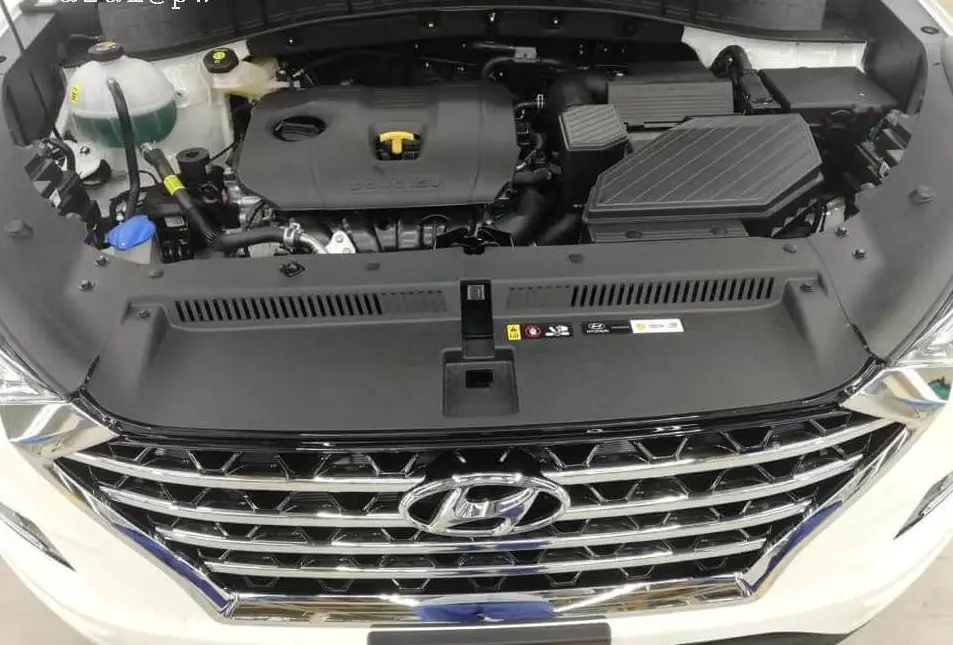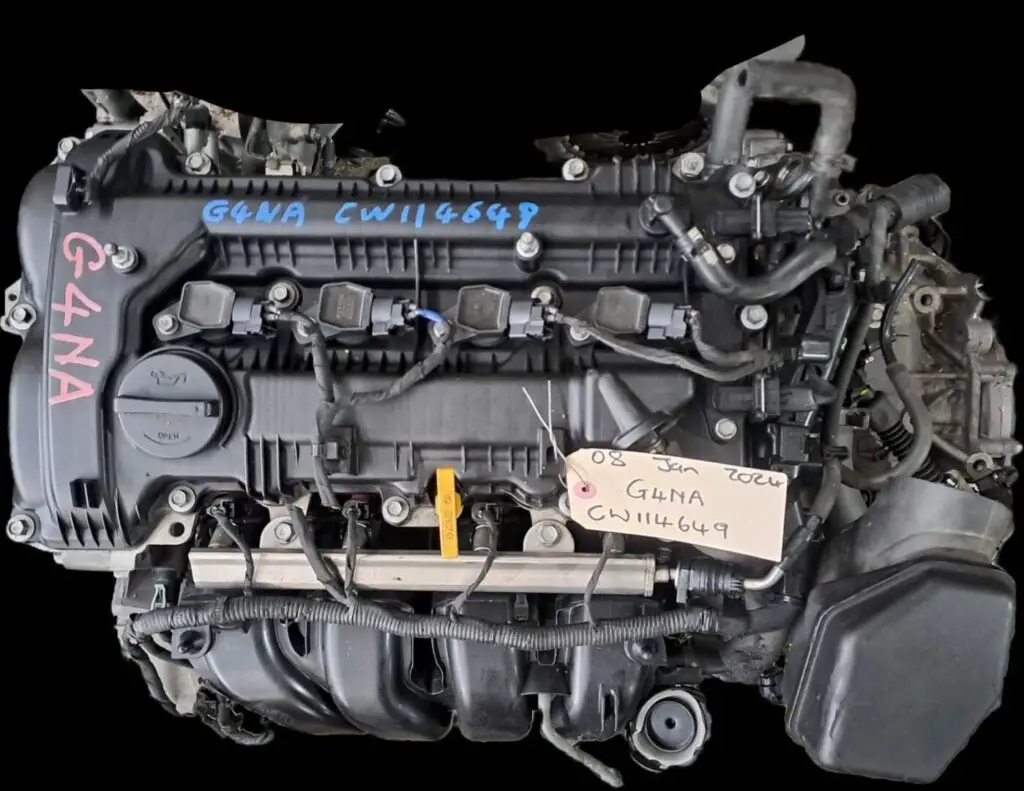Hyundai Tucson engine problems include stalling, excessive oil consumption, and engine knocking, mostly in 2015–2020 models. Hyundai has issued recalls and extended warranties to address these issues. Regular maintenance and checking for recalls can help prevent major engine failures.
The Hyundai Tucson, a popular compact SUV, is known for its reliability and value. However, like any vehicle, it is not without its challenges. Over the years, some Tucson models have been reported to experience engine-related problems, ranging from minor inconveniences to significant mechanical failures. This post explores the most common Hyundai Tucson engine problems, their causes, and potential solutions. If you’re a current or prospective Tucson owner, this guide will help you stay informed.

Contents
- 1 Common Hyundai Tucson Engine Problems
- 2 Affected Hyundai Tucson Models
- 3 Steps to Prevent Engine Problems
- 4 Hyundai’s Response and Warranty Coverage
- 5 Repair Costs for Common Issues
- 6 Frequently Asked Questions
- 7 Conclusion
Common Hyundai Tucson Engine Problems
Common Hyundai Tucson engine problems include:
Engine Stalling
One of the most reported issues in Hyundai Tucson models is unexpected engine stalling. This can occur while driving or idling and poses a safety risk.
Causes:
- Faulty sensors (e.g., crankshaft or camshaft position sensors).
- Clogged fuel injectors or fuel pump issues.
- Electronic Control Unit (ECU) glitches.
Solution:
- Replace faulty sensors and clean the fuel injectors.
- Update or reprogram the ECU to address software glitches.
Engine Knocking and Excessive Noise
Owners of certain Tucson models, especially those with high mileage, have reported engine knocking sounds during acceleration or idling.
Causes:
- Insufficient engine oil due to leaks or consumption.
- Worn-out bearings or connecting rods.
- Low-quality fuel or deposits in the combustion chamber.
Solution:
- Regularly monitor and maintain oil levels.
- Use high-quality gasoline and consider fuel additives for cleaning deposits.
- For severe cases, engine disassembly and replacement of damaged components may be necessary.
Excessive Oil Consumption
Some Tucson models consume more oil than expected, leading to frequent top-offs and potential engine damage if neglected.
Causes:
- Worn piston rings or cylinder walls.
- Valve seals deteriorating over time.
- Poor maintenance habits.
Solution:
- Conduct a compression test to identify worn components.
- Replace faulty piston rings and valve seals.
- Follow a strict oil change schedule using manufacturer-recommended oil.
Engine Seizure Due to Lack of Lubrication
Certain Hyundai Tucson models from specific years were part of recalls related to engine seizures caused by manufacturing defects.
Causes:
- Metal debris in the engine from improper manufacturing.
- Restricted oil flow to critical engine parts.
Solution:
- If the vehicle is part of a recall, have the engine inspected or replaced at a Hyundai dealership.
- Regular oil changes and inspections can prevent long-term damage.
Check Engine Light Activation
Frequent illumination of the check engine light can frustrate Tucson owners, signaling potential engine trouble.
Causes:
- Malfunctioning oxygen sensors or catalytic converters.
- Loose gas caps.
- Faulty ignition coils or spark plugs.
Solution:
- Use an OBD-II scanner to identify error codes.
- Replace defective parts such as oxygen sensors or spark plugs.
- Ensure the gas cap is tightened securely after refueling.

Affected Hyundai Tucson Models
Some model years are more prone to engine problems than others. According to consumer reports and online forums, Hyundai Tucson models from 2015 to 2020 were commonly cited for the above issues, particularly with 2.0L and 2.4L engines.
The 2016 and 2017 models were especially notorious due to recalls related to engine manufacturing defects. Hyundai addressed these issues by offering extended warranties for certain vehicles.
Steps to Prevent Engine Problems
To prevent engine problems in the Hyundai Tucson:
- Routine Maintenance: Regularly schedule oil changes, filter replacements, and tune-ups as recommended by Hyundai.
- Monitor Warning Signs: Pay attention to unusual noises, decreased performance, or dashboard warning lights.
- Use Quality Parts and Fluids: Always use Hyundai-recommended engine oil and genuine parts for repairs.
- Check for Recalls: Visit the National Highway Traffic Safety Administration (NHTSA) website to check if the vehicle is subject to a recall.
- Drive Responsibly: Avoid aggressive driving that may stress the engine unnecessarily.
Hyundai’s Response and Warranty Coverage
Hyundai has taken steps to address engine issues in the Tucson through recalls and extended warranties. For example:
- A major recall in 2020 covered over 120,000 Tucson vehicles to address possible engine fires caused by faulty ABS modules.
- Hyundai has extended its Powertrain Warranty to cover engine repairs for some affected models, giving owners additional peace of mind.
If you’re experiencing engine trouble, contact your local dealership to check warranty eligibility.
Repair Costs for Common Issues
While warranty coverage may reduce costs, some repairs can still be expensive:
| Issue | Estimated Cost |
|---|---|
| Engine sensor replacement | $150–$400 |
| Fuel injector cleaning | $100–$300 |
| Engine rebuild/replacement | $3,000–$5,000+ |
| Oxygen sensor replacement | $200–$500 |
Investing in regular maintenance can significantly reduce the likelihood of costly repairs.
Frequently Asked Questions
Here are some FAQs about Hyundai Tucson engine problems –
1. What years of the Hyundai Tucson have the most engine problems?
The 2016 and 2017 models are reported to have the most engine issues, particularly related to manufacturing defects and recalls.
2. How do I know if my Hyundai Tucson is part of a recall?
Check your Vehicle Identification Number (VIN) on the NHTSA website or contact your Hyundai dealership for recall information.
3. Can I drive my Tucson with the check engine light on?
While it may be safe to drive for a short period, ignoring the check engine light can worsen issues. Use an OBD-II scanner to identify the problem or visit a mechanic immediately.
4. Does Hyundai cover engine repairs under warranty?
Yes, Hyundai offers a 10-year/100,000-mile Powertrain Warranty, which often covers engine repairs. Additionally, extended warranties or recalls may apply to certain issues.
5. How can I prevent engine problems in my Hyundai Tucson?
Follow the manufacturer’s maintenance schedule, use high-quality oil, address warning signs promptly, and stay updated on recalls.
Conclusion
The Hyundai Tucson remains a popular choice among compact SUVs, offering a comfortable ride and modern features. However, potential engine problems, especially in earlier models, require attention. By staying informed, practicing proactive maintenance, and addressing issues promptly, you can enjoy a reliable and efficient driving experience with your Tucson.
If you’re considering buying a used Hyundai Tucson, research the specific model year and review its service history to ensure peace of mind.